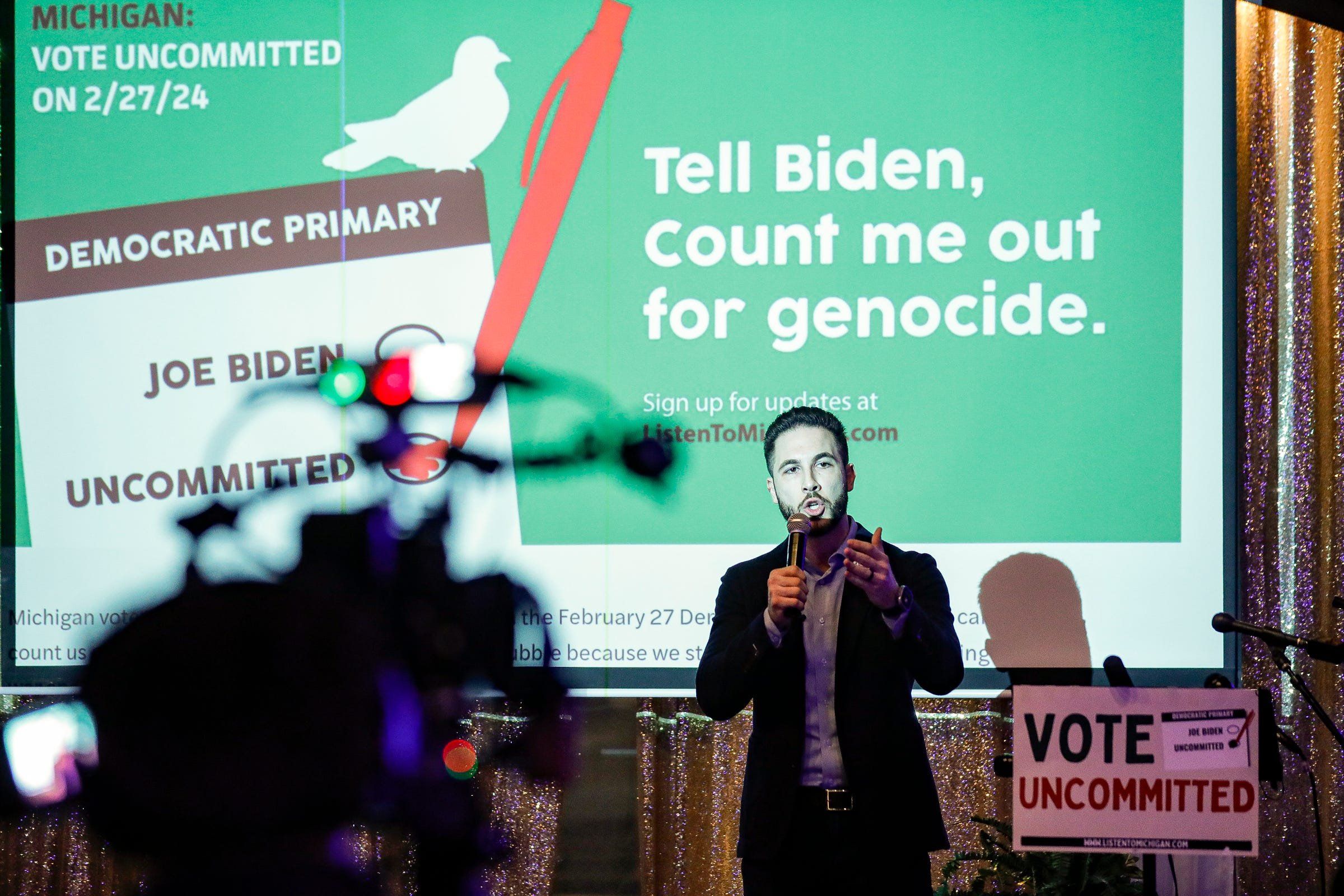February 28, 2024
Both Donald Trump and Joe Biden won their primaries in Michigan yesterday, but the vote revealed vulnerabilities for Joe Biden that could come back to haunt him in November.
Why Michigan mattered: It was Donald Trump’s victory over Hillary Clinton in Michigan that sealed the 2016 election, and Joe Biden’s triumph over Trump there and in other Upper Midwestern states in 2020 that decided the election. In all probability, it will play a decisive role this November
Michigan is also home to the largest Arab-American population in the United States. After a concerted campaign in protest of the Biden administration’s policy toward Israel and Gaza, 13 percent of Democratic primary voters chose “uncommitted” last night. In Dearborn and Hamtramck, two of the Michigan cities with the highest concentrations of Arab Americans, “uncommitted” won 56 and 61 percent of the Democratic vote respectively. Significant portions of Michigan’s college towns also voted uncommitted in protest, foreshadowing how many young, progressive voters are angry about American support for Israel.
GOP voters once again rejected Nikki Haley in favor of Donald Trump. Haley lost for a fifth time against the former president, winning 27% of the vote against Trump’s 68%. She has vowed to stay in the race through Super Tuesday, where the lion's share of the delegates are up for grabs.
More For You
Prime Minister Narendra Modi, with President of the European Council António Luís Santos da Costa, and President of the European Commission Ursula von der Leyen, at Hyderabad House, in New Delhi, India, on Jan. 27, 2026.
DPR PMO/ANI Photo
On Tuesday, the world’s largest single market and the world’s most populous country cinched a deal that will slash or reduce tariffs on the vast majority of the products they trade.
Most Popular
Sponsored posts
Five forces that shaped 2025
What's Good Wednesdays
What’s Good Wednesdays™, January 28, 2026
Mexican President Claudia Sheinbaum Pardo stands alongside Canadian Prime Minister Mark Carney and US President Donald Trump during the 2026 World Cup draw at the John F. Kennedy Center for the Performing Arts in Washington, D.C., on December 5, 2025.
Deccio Serrano/NurPhoto
Canadian Prime Minister Mark Carney has repeatedly tussled with US President Donald Trump, whereas Mexican President Claudia Sheinbaum has tried to placate him. The discrepancy raises questions about the best way to approach the US leader.
Fighters of the Qassam Brigades, the armed wing of the Palestinian Islamist Hamas movement, attend a rally marking the 35th anniversary of the group's foundation in Gaza City on December 14, 2022.
Photo by Majdi Fathi/NurPhoto
10,000: The number of Hamas officers that the militant group reportedly wants to incorporate into the US-backed Palestinian administration for Gaza, in the form of a police force.
Walmart is investing $350 billion in US manufacturing. Over two-thirds of the products Walmart buys are made, grown, or assembled in America, like healthy dried fruit from The Ugly Co. The sustainable fruit is sourced directly from fourth-generation farmers in Farmersville, California, and delivered to your neighborhood Walmart shelves. Discover how Walmart's investment is supporting communities and fueling jobs across the nation.
© 2025 GZERO Media. All Rights Reserved | A Eurasia Group media company.
